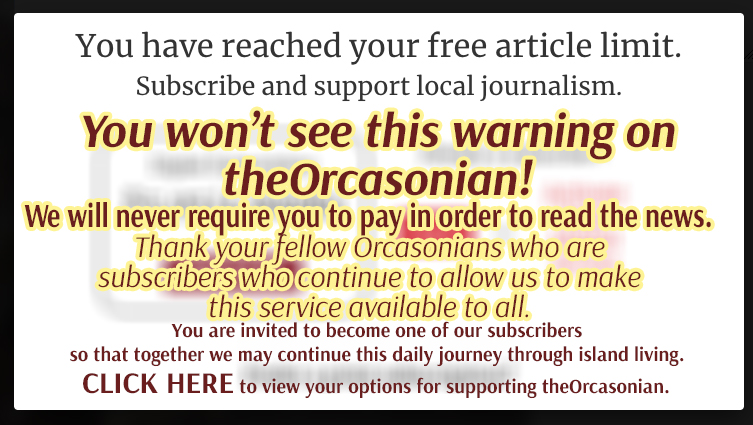These statements relieve the speaker and the audience of the responsibility to think about Indigenous peoples, at least until the next public event.
||| FROM THE ATLANTIC ||| REPRINT AT REQUEST OF ALEX MCLEOD
In David Mamet’s film State and Main, a Hollywood big shot tries to shortchange a set hand by offering him an “associate producer” credit on a movie. A screenwriter overhears the exchange and asks, “What’s an ‘associate producer credit’?” The bigshot answers: “It’s what you give your secretary instead of a raise.”
The practice of “land acknowledgment”—preceding a fancy event by naming the Indigenous groups whose slaughter and dispossession cleared the land on which the audience’s canapés are about to be served—is one of the greatest associate-producer credits of all time. A land acknowledgment is what you give when you have no intention of giving land. It is like a receipt provided by a highway robber, noting all the jewels and gold coins he has stolen. Maybe it will be useful for an insurance claim? Anyway, you are not getting your jewels back, but now you have documentation.

Long common in Canada and Australia, land acknowledgment is catching on in the United States and already de rigueur in certain circles. If you have seen enough of these—I have now watched dozens, sometimes more than one at the same event—you learn to spot them before the speaker even begins acknowledging. In many cases the tone turns solemn and moralizing, and the speaker’s posture stiff, as if preparing to read a confession at gunpoint. One might declare before, say, a corporate sales retreat: We would like to respectfully acknowledge that the land on which we gather to discuss the new line of sprinkler systems is in Mi’kma’ki, the ancestral and unceded territory of the Mi’kmaq. The acknowledgment is almost always a prepared statement, read verbatim, because like all spells it must be spoken precisely for its magic to work. The magic in this case is self-absolution: The acknowledgment relieves the speaker and the audience of the responsibility to think about Indigenous peoples, at least until the next public event.
Thanksgiving relies on a cartoon version of the settlement of the Americas, focusing on a moment of concord between victim and génocidaire. Land acknowledgments are similarly confected to stroke the sentiments of mostly non-Indigenous audiences—this time by enabling their preening self-criticism.
Earlier this month, Microsoft’s annual Ignite conference began with a land acknowledgment so bewildering to viewers that it went briefly viral. But it was not abnormal among statements of this sort. The emcee acknowledged that the company’s headquarters, one square mile of land outside Seattle, was “occupied by the Sammamish, Duwamish, Snoqualmie, Suquamish, Muckleshoot, Snohomish, Tulalip, and other coast Salish people… since time immemorial.” She noted that the tribes are “still there” but offered no connection between the past and today. Few if any of the baffled viewers would deny the historic presence of these peoples amid the sacred groves that later produced PowerPoint and Clippy, the Microsoft Word mascot. But in the absence of context, the effect of this parade of names was to suggest that for thousands of years the Indigenous peoples were crammed onto the Microsoft campus uncomfortably like canned salmon, doing who knows what, until Bill Gates arrived in the late 20th century to turn them into programmers.
Maybe it is a victory for Indigeneity to have the name Muckleshoot even mentioned at a Microsoft conference. By far the most common defense of land acknowledgments is that they harm no one, and they educate Americans about a hidden history that took place literally where they stand. Do they not at least do that?
READ FULL ARTICLE: theatlantic.com/ideas/archive/2021/11/against-land-acknowledgements-native-american/620820/
**If you are reading theOrcasonian for free, thank your fellow islanders. If you would like to support theOrcasonian CLICK HERE to set your modestly-priced, voluntary subscription. Otherwise, no worries; we’re happy to share with you.**








I find it difficult to read about our treatment of native American peoples. Our history is one of greed, indifference, conquest and murder of the tribes that were here long before we arrived. Under the guise of missionary work we were nothing more than conquerors seeking to pacify indigenous peoples of America and elsewhere thus making it easier to exploit their resources.
It was very long ago that humans first occupied any particular land. Since then, legal ownership of land stemmed from conquest, a fact that subsequent law-abiding occupiers of land prefer to forget, ignore, or as is increasingly the case, remember with unease. I comprehend land acknowledgements to be a response to the third reaction. It is difficult for a culture that dares to look back,, when the foundation of its law and order is based on conquest.
‘Land Acknowledgments’ are just moral exhibitionism. Precisely.
The first time I heard the language now incorporated in our Charter, my question was “And?” “So, what now?”
But, of course, there is no “next.” There’s just the next meeting with the same smug intonation, moving on to the prosaic business of the committee or workgroup or whichever entity is meeting.
I see land acknowledgment as a starting point for further, continuing engagement with Indigenous peoples, not as an end in itself. But I worry that too many of us will be satisfied with the latter.
We not only stole land and resources from the indigenous peoples, we appropriated many of their ideas and labeled them as Western European in origin:
“In an extended interview, we speak with archeologist David Wengrow, who co-authored the new book “The Dawn of Everything: A New History of Humanity” with the late anthropologist David Graeber. The book examines how Indigenous cultures contributed greatly to what we have come to understand as so-called Western ideas of democracy and equality, but argues these contributions have been erased from history. “What the broad sweep of history shows is that living in large-scale, densely populated, technologically sophisticated societies really doesn’t require people to simply give up social freedoms,” says Wengrow. The two completed the book just weeks before Graeber died unexpectedly last year at the age of 59.
https://www.youtube.com/watch?v=JDO28CPAPuM
Instead of dividing ourselves into polarized camps of us and them, I am hoping to combine ideas from all cultures that will help move us towards a more sustainable future.
I feel that land acknowledgements show the respect that is a necessary beginning for constructive dialogue.
Yes, please DO read the full article–A really articulate statement on the “moral onanism” which has become so popular of late, characterized (as I assume is implied) by latest revision to the preface of our County Charter. Unfortunately, though, the article is truncated at the end as excerpted above, and it’s well worth reading the entire piece. The excerpt leaves us hanging with the question, “By far the most common defense of land acknowledgments is that they harm no one, and they educate Americans about a hidden history that took place literally where they stand. Do they not at least do that?” Implicitly yes? But continue reading:
[Excerpt continues]: “No, not even a little. It is difficult to exaggerate the superficiality of these statements…Some people argue that land acknowledgments are “gestures of respect.” I’m not sure one can show respect while also being indifferent to a people’s existence. The statements are a counterfeit version of respect. Teen Vogue put it well, if unintentionally: “Land acknowledgment is an easy way to show honor and respect to the indigenous people.” A great deal of nonsense about identity politics could be avoided by…realizing that respect shown the “easy way” is just as cheap as it sounds. Real respect occurs only when accompanied by time, work, or something else of value…Land acknowledgments are just words, and words can distract from real issues, in particular the ultimate one, which is Native American tribal sovereignty. But some words are honest, even loving, and others are hollow and nauseating.”
If we’re being honest, we’re talking about “reparations.” What would that mean? Returning lands (our national parks, perhaps, as has recently been suggested) to Native Americans? Real assistance to alleviate the atrocious conditions on many reservations? Or maybe just more money for casinos. If we’re going to talk the talk, lets get real. But maybe that’s another conversation…
We can at least uphold our end of the treaty between the U.S. and Washington State tribes in 1854 and 1855:
“The main question, however, was whether treaties signed in 1854 and 1855 guaranteed there would always be enough fish to provide 21 western Washington tribes with a “moderate living.” The Ninth Circuit Court gave a qualified “yes” to the question, and now, the Supreme Court has affirmed that decision.”
https://www.yesmagazine.org/social-justice/2018/06/11/supreme-court-affirms-native-american-treaty-rights-to-harvest-salmon
“It’s a great day for our salmon, our tribes, and our treaty rights,” he said. “In 2018 the Supreme Court still recognizes that our treaties are the supreme law of the land. It’s not just a piece of paper that was signed in 1855. We never gave up these rights. We reserved these rights in exchange for most of the land in western Washington.”
The justices tied 4-4 in affirming a Ninth Circuit Court ruling in favor of the tribes in a case that has been brewing since 2001, with treaty tribes in western Washington and the Yakama Nation in eastern Washington challenging the state to remove or repair impassable road culverts that block salmon from returning to their historic spawning habitat.
The main question, however, was whether treaties signed in 1854 and 1855 guaranteed there would always be enough fish to provide 21 western Washington tribes with a “moderate living.” The Ninth Circuit Court gave a qualified “yes” to the question, and now, the Supreme Court has affirmed that decision.